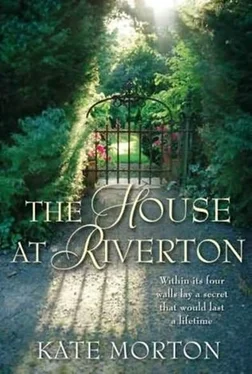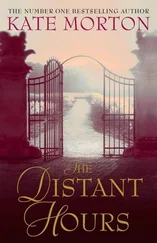Hannah couldn’t look at Robbie. She focused attention on her plate, moved her food about and set her fork to rest.
‘Travelling certainly opens one’s eyes to different cultures,’ Robbie was saying. ‘I came across a tribe in the Far East in which the men carved designs into their wives’ faces.’
Emmeline gasped. ‘With a knife?’
Teddy swallowed a lump of half-masticated beef, enthralled. ‘Why on earth?’
‘Wives are considered mere objects of enjoyment and display,’ said Robbie. ‘Husbands think it their god-given right to decorate them as they see fit.’
‘Barbarians,’ said Teddy, shaking his head, signalling to Boyle to refill his wine. ‘And they wonder why they need us to civilise them.’
Hannah didn’t see Robbie again for weeks after that. She thought he’d forgotten his promise to lend her his book of poetry. It was just like him, she suspected, to charm his way into a dinner invitation, make empty promises, then vanish without honouring them. She was not offended, merely disappointed in herself for being taken in. She would think of it no more.
Nonetheless, a fortnight later, when she happened to find herself in the H-J aisle of the little bookstore in Drury Lane, and her eyes happened to alight on a copy of his first poetry collection, she bought it. She had appreciated his poetry, after all, long before she realised him a man of loose promises.
Then Pa died, and any lingering thoughts of Robbie Hunter’s sudden return were put aside. With news of her father’s death, Hannah felt as if her anchor had been severed, as if she had been washed from safe waters and was at the whim of tides she neither knew nor trusted. It was ridiculous of course, she hadn’t seen Pa for such a long time: he had refused to see her since her marriage and she’d been unable to find the words to convince him otherwise. Yet despite it all, while Pa lived she had been tied to something, to someone large and sturdy. Now she was not. She felt abandoned by him: they had often fought, it was a part of their peculiar relationship, but she had always known he loved her specially. And now, with no word, he was gone. She started to dream at night of dark waters, leaking ships, relentless ocean waves. And in the day she began to dwell once more, upon the spiritualist’s vision of darkness and death.
Perhaps it would be different when Emmeline moved permanently to number seventeen, she told herself. For it had been decided after Pa’s death that Hannah would serve as guardian of sorts for Emmeline. It was just as well they keep an eye on her, Teddy said, after the unfortunate business with the film-maker. The more Hannah thought about it, the more she looked forward to the prospect. She would have an ally in the house. Someone who understood her. They would sit up late together, talking and laughing, sharing secrets the way they had when they were younger.
When Emmeline arrived in London, however, she had other ideas. London had always agreed with Emmeline and she threw herself further into the social life she adored. She attended costume balls every night-‘White Parties’, ‘Circus Parties’, ‘Under the Sea Parties’-Hannah could never keep count. Emmeline took part in elaborate treasure hunts that involved the pilfering of prizes, from beggars’ cups to policemen’s hats. She drank too much and smoked too much, and considered the night a failure if she couldn’t find a shot of herself in the society pages the next day.
Hannah found Emmeline one afternoon entertaining a group of friends in the morning room. They had shifted the furniture to the edges of the walls and Deborah’s expensive Berlin rug lay by the fire in a haphazard roll. A girl in flimsy lime chiffon, whom Hannah had never met, sat on the rolled rug smoking lazily, dropping ash, watching as Emmeline tried to teach a baby-faced young man with two left feet to dance the shimmy-shake.
‘No, no,’ Emmeline said, laughing. ‘You shift on the count of three, Harry darling. Not two. Here, take my hands and I’ll show you.’ She restarted the gramophone. ‘Ready?’
Hannah picked her way around the room’s rim. She was so distracted by the casualness with which Emmeline and her friends had colonised the room (her room, after all) that she had quite forgotten what it was she came for. She made pretence of digging around in the writing bureau as Harry collapsed on the sofa, saying, ‘Enough. You’re going to kill me, Em.’
Emmeline fell next to him, threw her arm around his shoulders. ‘Have it your way, Harry, but you can hardly expect me to dance with you at Clarissa’s party if you don’t know the steps. The shimmy-shake is all the rage and I’m going to dance it all night.’
‘And all morning,’ said the girl in the lime chiffon.
All morning was right, thought Hannah. More and more, Emmeline’s late nights were becoming early mornings. Not content with dancing the night away at the Berkley, she and her friends had taken to continuing the party at someone’s house. Even the servants were beginning to talk. The new housemaid had been cleaning the entrance hall when Emmeline swept in at six the other morning. Emmeline was just lucky neither Teddy nor Deborah knew. That Hannah made sure they didn’t.
‘Jane says Clarissa’s serious this time,’ said lime chiffon.
‘Think she’ll actually go through with it?’ said Harry.
‘We’ll see tonight,’ said Emmeline. ‘Clarissa’s been threatening to bob her hair for months.’ She laughed. ‘More fool her if she does: with that bone structure she’ll look like a German drill sergeant.’
‘Are you taking gin?’ said Harry.
Emmeline shrugged. ‘Or wine. Hardly matters. Clarissa intends to throw it all into the bath so people can dip their cups.’
A bottle party, thought Hannah. She’d heard of those. Teddy liked to read her reports from the newspaper when they were at the breakfast table. He’d lower the paper to attract her attention, shake his head with weary disapproval and say, ‘Listen to this. Another of those parties. Mayfair, this time.’ Then he’d read the article, word by word, taking great pleasure, it seemed to Hannah, in describing the uninvited guests, the indecent decorations, the raids by police. Why couldn’t young people behave as they had when they were young, he’d say? Have balls with supper, servants pouring wine, dance cards.
Hannah was so horrified by Teddy’s insinuation that she herself was no longer young that although she thought Emmeline’s behaviour a little like dancing on the graves of the dead, she never said as much to her.
And she made particular care to ensure Teddy didn’t know Emmeline attended such parties. Much less help to organise them. Hannah became very good at inventing excuses for Emmeline’s nocturnal activities.
But that night, when she climbed the stairs to Teddy’s study, armed with an ingenious half-truth about Emmeline’s dedication to her friend Lady Clarissa, he was not alone. As she neared his closed door, Hannah heard voices. Teddy’s and Deborah’s. She was about to turn, to come back later, when she heard her father’s name. She held her breath and crept toward the door.
‘You have to feel sorry for him, though,’ said Teddy. ‘Whatever you think of the man. Dying of stroke, at his age. Not even fifty.’
‘Stroke? Drink more like.’ This was Deborah. Hannah’s lips tightened as she continued. ‘Oh yes. He’d been doing his best to drown his liver for some time. Lord Gifford told me one of the servants found him when she took his breakfast: propped against the pillows, empty bottle of whisky on the mattress beside him. Place stank like a brewery.’
Lies, thought Hannah, her breaths grown hot.
‘That so?’ said Teddy.
‘So says Lord Gifford. Oh, the servants were doing their best to cover the fact, but Lord Gifford reminded them it was his job to protect the family’s reputation and that he needed the facts to do so.’
Читать дальше












